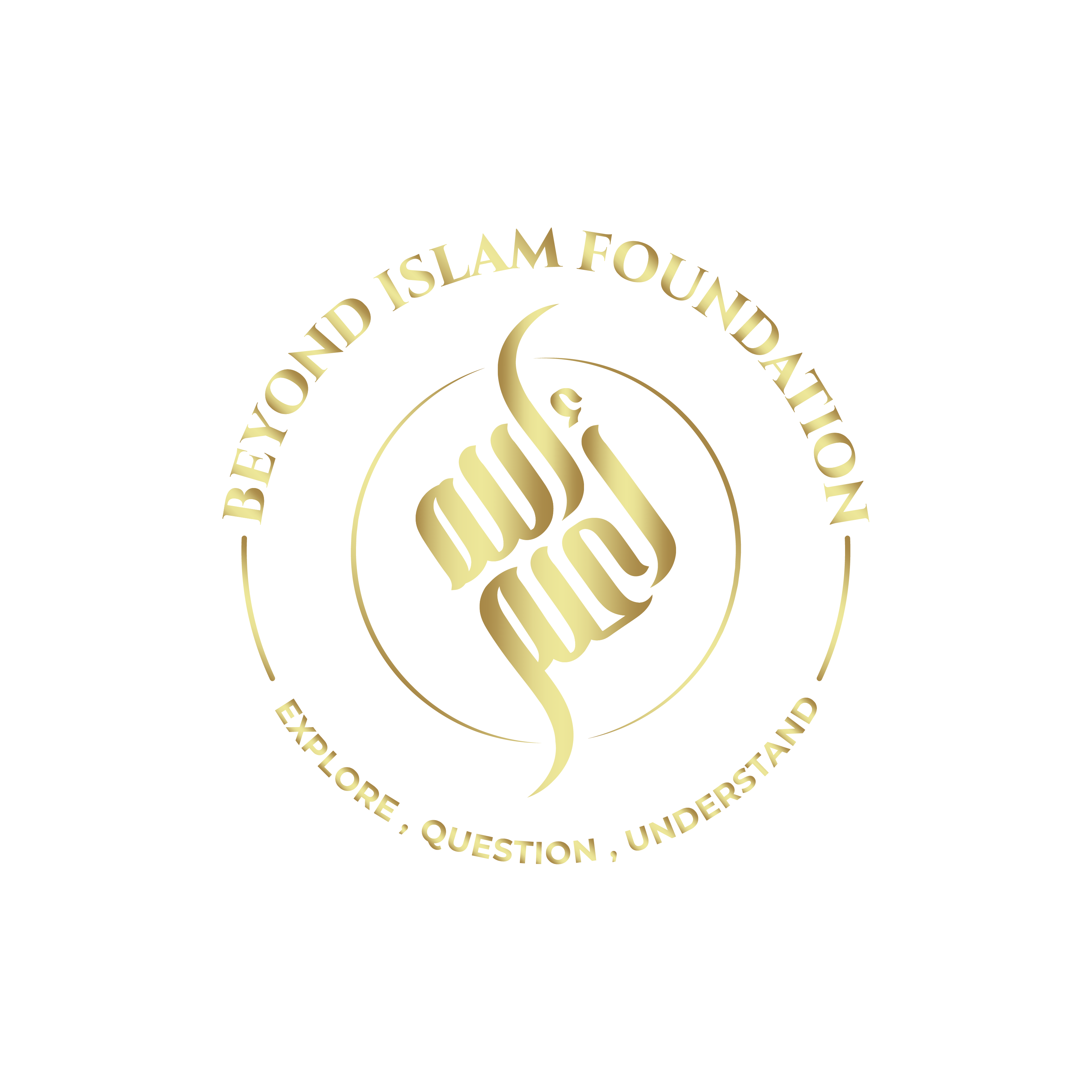Introduction: A Just Economic System Rooted in Divine Guidance
📖 “And do not consume one another’s wealth unjustly, nor use it to bribe those in authority in order to gain a share of others’ wealth sinfully, while you know it is wrong.” (Qur’an 2:188)
The Qur’an provides a comprehensive economic framework centered on fairness, ethical trade, wealth circulation, and social justice. Unlike many other religious and secular economic models, which often emphasize either free-market capitalism or state-controlled redistribution, the Qur’anic system maintains a balance between individual enterprise and communal welfare, ensuring wealth serves the broader society rather than a privileged few. Historically, this balance has been implemented in various Islamic economies, such as during the early Caliphate, where zakāt and waqf (endowments) played a key role in redistributing wealth while encouraging entrepreneurship and trade. Unlike modern capitalist and socialist models, the Qur’anic economic system ensures that wealth does not concentrate in the hands of a few, nor does it suppress individual initiative. Instead, it emphasizes mutual benefit, honesty, and accountability.
This article explores the fundamental economic principles laid out in the Qur’an and how they serve as a foundation for a just and balanced economic system.

1. Fair Trade and Honest Transactions
📖 “Give full measure and do not be of those who cause loss. And weigh with an even balance. And do not defraud people by depriving them of what is rightfully theirs, nor spread corruption in the land.” (Qur’an 26:181-183)
Key Observations:
- Trade must be based on fairness, honesty, and mutual consent.
- Deception, fraud, and exploitation are condemned.
- Business ethics are linked to moral integrity and social responsibility.
The Qur’an calls for ethical trade practices that prevent monopolies, deceitful marketing, and financial manipulation.
2. The Prohibition of Riba (Exploitative Interest)
📖 “O you who believe! Do not consume Riba (usury/interest), doubled and multiplied. And fear Allah, so that you may succeed.” (Qur’an 3:130)
📖 “But Allah has permitted trade and forbidden Riba.” (Qur’an 2:275)
Key Observations:
- Interest-based financial systems create inequality and exploitation.
- The Qur’an distinguishes between lawful profit from trade and unjust gains from Riba.
- Wealth should circulate through productive and ethical means, not through debt traps.
Riba fosters economic dependency and systemic inequality, concentrating wealth in the hands of a few while indebting the masses. Unlike modern financial systems that rely heavily on interest-based lending, the Qur’anic model promotes risk-sharing, ethical investment, and wealth circulation to ensure economic justice. Alternative systems, such as profit-and-loss sharing models and cooperative banking, align more closely with the Qur’anic vision and provide viable paths toward a fairer economy. In profit-and-loss sharing models, both investors and entrepreneurs share risks and rewards, promoting ethical investment and sustainable business growth. Cooperative banking operates on mutual ownership, ensuring that financial institutions serve communities rather than profit-driven shareholders. These models have been successfully implemented in various Islamic finance institutions worldwide, demonstrating their feasibility in modern economies. The Qur’anic economic model promotes fairness by ensuring money serves productive purposes rather than speculative profit-seeking.
3. Wealth Circulation and Economic Justice
📖 “So that it (wealth) may not merely circulate among the rich among you.” (Qur’an 59:7)
Key Observations:
- Wealth must be distributed fairly to prevent economic disparity.
- Monopolies and hoarding are discouraged.
- Zakāt (obligatory charity) and voluntary giving maintain economic balance.
The Qur’an encourages an economic system where wealth flows through society, benefiting all rather than being locked within elite circles. One historical example of effective wealth redistribution is the implementation of zakāt during the Caliphate of Umar ibn Abdul Aziz, where collected zakāt funds were so efficiently distributed that there were reportedly no poor individuals left to receive it. In modern times, zakāt funds in certain Islamic economies have been used for education, healthcare, and poverty alleviation, demonstrating its continued effectiveness in fostering economic balance.
4. The Ethics of Labor and Productivity
📖 “And that man will not obtain except what he strives for.” (Qur’an 53:39)
Key Observations:
Hard work and effort determine economic success, not privilege or nepotism.
Employment and entrepreneurship are means of sustaining dignity and independence.
Exploitation of labor is forbidden, and workers must be compensated fairly.
The Qur’anic economic model promotes a work ethic that rewards effort, while also ensuring justice for workers and business owners alike.
5. Resource Management and Sustainability
📖 “And do not waste (resources) extravagantly. Indeed, the wasteful are brothers of the devils.” (Qur’an 17:26-27)
Key Observations:
- Overconsumption and wastefulness are condemned.
- Resources are a trust from Allah and should be used responsibly.
- Sustainability and environmental consciousness are integral to economic stability.
A Qur’an-based economic system ensures that natural resources are utilized wisely, preventing environmental destruction and economic instability caused by greed and waste. The Qur’an emphasizes moderation and accountability in consumption, advocating for sustainable agricultural practices, water conservation, and responsible land use. Policies that align with these principles include regenerative farming, ethical sourcing of materials, and reducing industrial waste to maintain ecological balance and long-term economic stability.
6. Social Responsibility and Charity (Zakāt & Sadaqah)
📖 “Establish Salāt and give Zakāt. Whatever good you send forth for yourselves, you will find it with Allah.” (Qur’an 2:110)
📖 “And in their wealth was a rightful share for the beggar and the deprived.” (Qur’an 51:19)
Key Observations:
- Zakāt ensures wealth redistribution to support the underprivileged.
- Voluntary charity (Sadaqah) strengthens social ties and alleviates poverty.
- Economic success is measured by contribution to society, not individual accumulation.
Wealth in Islam is not an end in itself but a means of ensuring societal well-being. This principle can be practically applied by promoting ethical business practices, ensuring fair wages, and reinvesting wealth into community projects that foster long-term development. Financial models based on shared risk and cooperative ownership, such as Islamic finance and microfinance initiatives, serve as modern applications of this Qur’anic approach, ensuring that economic prosperity benefits society as a whole. Giving is not charity—it is a responsibility.
7. A Qur’anic Alternative to Modern Economic Systems
📖 “And Allah has set the balance, so do not transgress in the balance.” (Qur’an 55:7-8)
Key Observations:
- The Qur’anic economic model balances free trade with social justice.
- It eliminates exploitative financial practices while encouraging productivity.
- It promotes a system where wealth serves the common good, not individual greed.
Unlike capitalism, which encourages innovation and economic growth but often leads to unchecked consumerism and wealth inequality, and socialism, which promotes social welfare but can suppress individual initiative, the Qur’anic model offers a balanced, sustainable approach that integrates economic productivity with social justice and ethical responsibility.
Conclusion: Implementing the Qur’anic Economic Vision
The Qur’an presents a powerful economic model based on fairness, ethical trade, and responsible resource management. It encourages a system where wealth flows through society, benefiting all, and where economic success is measured by contribution rather than accumulation.
Are you ready to rethink economy through the lens of divine justice?
A just economy begins with individual responsibility. Start by adopting fair trade practices, avoiding exploitative financial systems, and ensuring that your wealth contributes to social welfare. Engage in ethical investments, support community-driven initiatives, and implement zakāt and sadaqah as a means of wealth redistribution. By aligning your financial decisions with Qur’anic principles, you help create an economy rooted in justice and sustainability.
